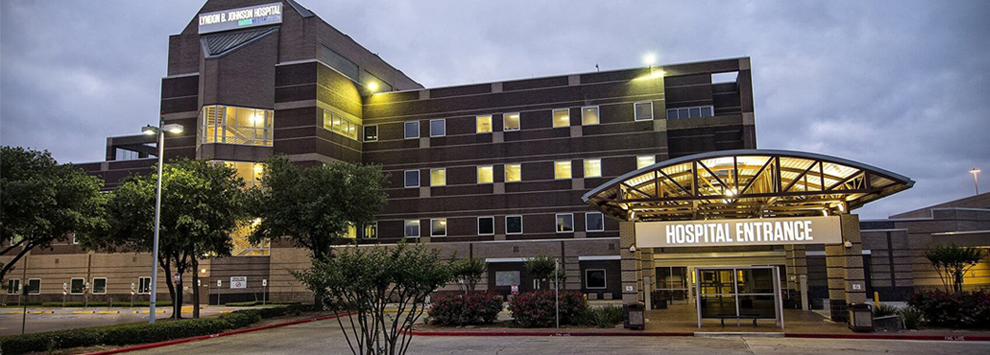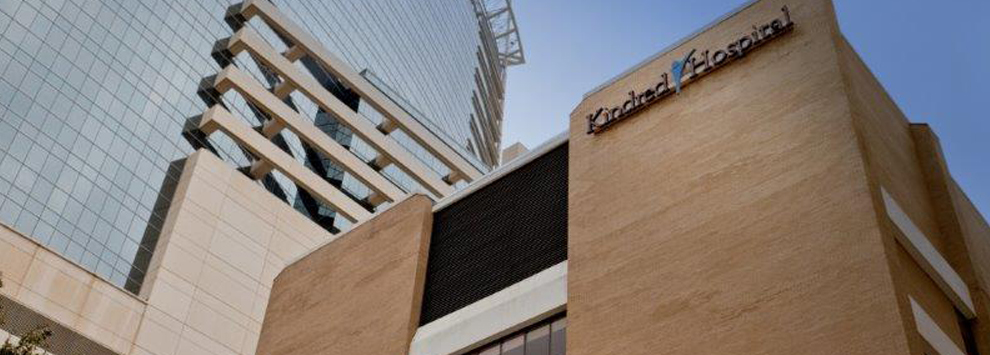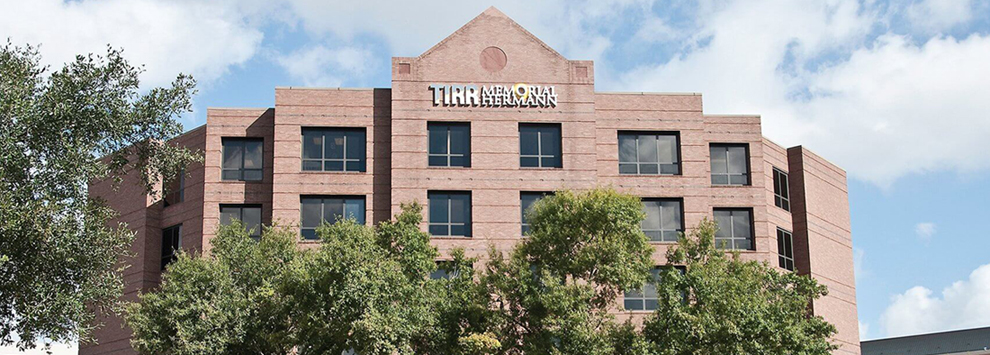Rotations

Memorial Hermann-Texas Medical Center is the primary teaching hospital for the McGovern Medical School at UTHealth. Memorial Hermann-TMC (MHH-TMC) provides leading-edge care in cardiac, neuroscience, orthopedics, women’s health, general surgery, organ transplantation and much more. As one of only two certified Level I trauma centers in the greater Houston area, the hospital provides 24/7 emergency and trauma care. Memorial Hermann Life Flight® provides emergency rescue within a 150-mile radius.
MHH Medical Intensive Care Unit (MICU)
Focused critical care training on patients with a multitude of medical illnesses and multi-organ failure, including decompensated respiratory, liver, kidney, and endocrine diseases. Toxic ingestions are also taken care of in the MICU. There are abundant opportunities to engage and support patients and their families through remarkable recoveries as well as through end-of-life discussions. Fellows are expected to supervise residents, develop procedural competency, and participate in multidisciplinary rounds with nurses, social workers/case managers, nutritional services, and critical care pharmacy. The MICU also serves as the COVID-ICU.
MHH Heart & Vascular Institute – Advanced Heart Failure Critical Care (HFICU)
Focused critical care training as a consultant on patients with advanced heart failure including those who may require mechanical circulatory support (MCS) devices including percutaneous and implanted ventricular assist devices, ECMO (both veno-arterial for cardiac failure as well as veno-venous for respiratory failure and ARDS), heart transplantation, and lung transplantation. Fellows take care of both pre- and postoperative patients.
MHH Heart & Vascular Institute – Coronary Critical Unit (CCU)
Focused critical care training as a consultant on patients with cardiac diseases including acute coronary syndromes, acute valvular heart disease, out of hospital cardiac arrest, and cardiogenic shock. Fellows receive education in management of critically ill cardiac patients including targeted temperature management, mechanical ventilation and mechanical circulatory support. This rotation offers exposure to patients with Interventional Cardiology procedures, including Transcatheter Aortic and Mitral Valve replacements. To date, Heart & Vascular Institute maintains the leading TAVR program in the United States.
MHH Heart & Vascular Institute – Cardiovascular Surgical Intensive Care (CVICU)
Focused critical care training as a consultant on high acuity patients with cardiac surgical procedures include both elective and emergent aortic aneurysms and aortic dissections, coronary bypass grafting, complex arrhythmia, valvular replacement and pericardial and thoracic procedures. Both open and endovascular procedures are abundant.
MHH Transplant Surgical Intensive Care Unit (TSICU)
Focused critical care training on patients with advanced liver and kidney diseases including patients who have received liver, kidney and pancreas transplantation. Rotation on this service includes coverage of pulmonary consultations for inhalational lung injury in the John S. Dunn Burn Center.
MHH Neurological Trauma Intensive Care Unit (NTICU)
Focused critical care training at the Mischer Neuroscience Institute learning the management of pre and post-operative neurosurgical patients with both traumatic injuries and neurovascular diseases.
MHH Surgical Trauma Intensive Care Unit (STICU)
Focused critical care training in our level I trauma center. Under the guidance of our Surgical Critical Care team, our fellows learn about the evaluation and management of acute traumatic injuries, surgical management of critical illness, and percutaneous gastrostomy and tracheostomy tube placement.
MHH Night Float Rotation
Pulmonary and critical are fellows take care of nocturnal admissions to the various intensive care units, address any emergencies, as well as provide emergent pulmonary consultative services as the MHH hospital’s night float under the supervision and guidance of an in-house faculty member. This rotation affords an immense amount of autonomy for the fellow, as well as an additional opportunity to teach and work with residents and advanced care providers.
MHH Pulmonary Consultation
Focused pulmonary consultative training on diverse patients across the spectrum of acute and chronic lung disease. During this rotation fellows spend ample time interpreting pulmonary function tests (PFTs), six-minute walk testing, ambulatory oximetry, and supervise and interpret cardiopulmonary exercise tests (CPETS). Basic bronchoscopic and pleural procedures also comprise a routine part of this rotation.MHH Interventional Pulmonary (IP) Consultation and Procedures
Focused pulmonary consultative training on advanced pulmonary procedures including percutaneous tracheostomy placement and subsequent management, and advanced pleural and bronchoscopic procedural training, both inpatient and outpatient.MHH Sleep Consultation
Focused inpatient sleep consultative training on various sleep disorders either first come to light during a patient’s hospitalization or otherwise negatively affect their acute illness. In The fellows spend the bulk of their time in the MHH Sleep Disorders Center interpreting both in-lab and ambulatory polysomnographic sleep studies. In addition, this rotation includes a robust ambulatory component with both underserved and a private sleep clinic patient population. PCCM fellows spend the month side by side with the Sleep Medicine fellows in their educational curriculum as well.

Lyndon B. Johnson Hospital is a 207 licensed-bed acute care hospital offering a full range of medical services. LBJ Hospital is a verified Level III trauma center and was the first such center designated in Texas. It also is the state’s busiest Level III trauma center, with more than 70,000 emergency patient visits each year. LBJ Hospital carries the distinction of being a regional center for neonatal intensive care for high-risk deliveries and very low birth weight infants and provides an array of specialized medical and surgical services.
LBJ Medical Intensive Care Unit (MICU)
Focused critical care training on patients with a multitude of medical illnesses and multi-organ failure, including decompensated respiratory, liver, kidney, and endocrine diseases. There are abundant opportunities to engage and support patients and their families through remarkable recoveries as well as through end-of-life discussions. Fellows are expected to supervise residents, develop procedural competency, and participate in multidisciplinary rounds with nurses, social workers/case managers, nutritional services, and critical care pharmacy. The MICU also serves as the COVID-ICU. The LBJ patient population is largely an under-served country population.LBJ Surgical Intensive Care Unit (SICU)
Pulmonary and critical care fellows cover the patients in the surgical ICU overnight while on night float. This is a great opportunity to co-manage patients with surgical critical illness with General and Thoracic Surgery.LBJ Pulmonary Consultation
Focused pulmonary consultative training on diverse patients across the spectrum of acute and chronic lung disease and get high exposure to patients with broad acuity and diverse pulmonary pathology. During this rotation fellows spend ample time interpreting pulmonary function tests (PFTs), six minute walk testing, ambulatory oximetry, and supervise and interpret cardiopulmonary exercise tests (CPETS). Both basic and advanced bronchoscopic and pleural procedures also comprise a routine part of this rotation.LBJ Night Float Rotation
Pulmonary and critical are fellows take care of nocturnal admissions to the intensive care units, address any emergencies in the entire hospital, as well as provide emergent pulmonary consultative services as the LBJ night float. This rotation affords an immense amount of autonomy for the fellow, as at this point there is no in-house faculty.LBJ Ambulatory Care Rotation
Fellows get a robust ambulatory experience at LBJ, Smith clinic, and UT physician’s clinics. Below are some of the specialty clinics that fellows attend during this rotation.
- Asthma Clinic
- Bronchiectasis Clinic
- COPD Clinic
- General Pulmonology Clinic
- Interstitial Lung Disease Clinic
- Interventional Pulmonology Clinic
- Lymphangioleiomyomatosis (LAM) & Rare Lung Disease Clinic
- LVAD & Advanced Heart Failure Clinic
- Lung Cancer Screening Clinic
- Lung Transplant Clinic
- Post-Intensive Care Syndrome Clinic
- Pulmonary Hypertension Clinic
- Pulmonary Nodule Clinic
- Sleep Clinic

The University of Texas MD Anderson Cancer Center is one of the original three comprehensive cancer centers in the United States. MD Anderson is the largest, and widely regarded as one of the foremost cancer centers in the world. MD Anderson ranks first in the number and amount of research grants awarded by the National Cancer Institute. By studying how cancer begins and responds to various treatments, we can help patients overcome disease and prevent recurrence. MD Anderson Cancer Center has ranked as one of the top two hospitals in cancer care every year since U.S. News & World Report began its annual “America’s Best Hospitals” survey in 1990. Many physicians are frequently recognized as among the best in the nation by services including Best Doctors in America.
MD Anderson Pulmonary Consultation
This rotation provides our fellows with a focused pulmonary consultative training across the spectrum of acute and chronic lung disease in the setting of confirmed or suspected cancer. During this rotation fellows spend ample time performing pleural and bronchoscopic procedures.
MD Anderson Interventional Pulmonary (IP) Consultation
Our fellows receive focused training at MD Anderson’s world-renowned interventional pulmonology program attaining skills using endobronchial ultrasound, rigid bronchoscopy, airway stents, navigational bronchoscopy, medical pleuroscopy, and argon plasma coagulation.

Kindred Hospital Houston Medical Center is a 105-bed hospital treating chronically, critically ill patients with specialized care who require an extended stay in a hospital setting. This hospital is a transitional care hospital (LTAC) featuring a 9-bed ICU and six negative pressure rooms. Kindred prides itself on specialized pulmonary care, wound care, diabetes management services, palliative and rehabilitative services, stroke and brain injury care, and organ transplant care. Long term intravenous antibiotic therapy and post-intensive care syndrome care are additional services provided at this facility.
Kindred Hospital Pulmonary Consultation
Our fellows manage and consult on inpatients in this LTAC facility. In conjunction with our Interventional Pulmonology service, fellows rounding at Kindred have ample opportunity for procedural competency and inpatient pulmonary disease management, acute and chronic ventilator management, management of acute and chronic tracheostomies, as well as weaning and eventual decannulation of tracheostomies.Kindred Hospital House Officer
During the daytime hours our fellows also serve as the LTAC’s house officer. In this role they work closely with primary services and are called to rapid responses as well as any other emergencies including cardiac arrest. They lead the resuscitation efforts, as well as efforts to help transfer patients to acute care hospitals when needed. In addition, as house officer the fellows also perform procedures such as placement of central venous catheters.

TIRR Memorial Hermann is the best rehabilitation hospital in Texas and among the best in the nation. It’s a 134-bed hospital and outpatient center, treating a wide a range of disabilities from complex conditions like brain injury, stroke, spinal cord injury, multiple trauma and amputation, to rehabilitation for conditions including multiple sclerosis, Parkinson’s disease, post-polio syndrome, rheumatoid arthritis, and lupus.
TIRR Pulmonary Consultation
TIRR Memorial Hermann offers novel opportunities for fellows for mechanical ventilation and pulmonary consultation with spinal cord injury and traumatic brain injury patients that are not available at other sites.